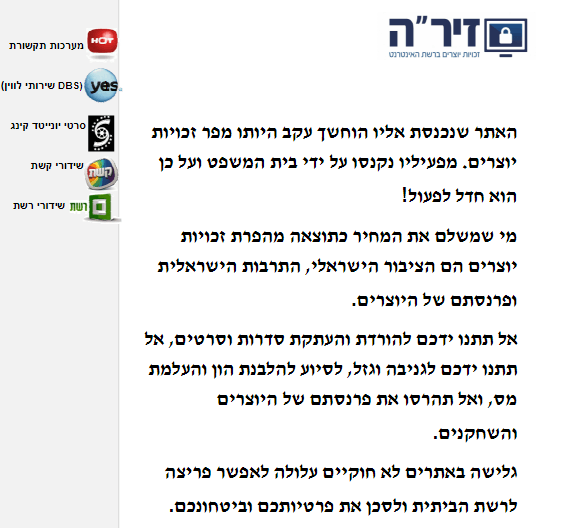FUNimation Targets ‘Pirate’ Streaming Site KissAnime
jeudi 1 juin 2017 à 20:43 American anime distributor FUNimation is no stranger to hunting down pirates.
American anime distributor FUNimation is no stranger to hunting down pirates.
Headquartered in Texas, the company targeted 1337 alleged BitTorrent downloaders of the anime series “One Piece” at a local court a few years ago.
While the company no longer targets individual users through the U.S. legal system, it now appears to have its eyes set on a higher profile target, the popular anime streaming site KissAnime.
With millions of pageviews per day, KissAnime is the go-to site for many anime fans. The site is listed among the 250 most visited websites in the United States, making it one of the largest unauthorized streaming platforms in the world.
This is a thorn in the side of FUNimation, which recently obtained a DMCA subpoena to unmask part of the site’s infrastructure. Like many other streaming portals, KissAnime uses Google’s servers to host videos. These videos are served through CDN links, presumably to make them harder to take down.
FUNimation traced a CDN IP-address, used by KissAnime to stream pirated “One Piece” content, back to U.S. cloud hosting platform DigitalOcean, and asked the company to disable the associated link.
“Through our investigations, we have a good faith belief that a web server for which Digital Ocean, Inc. provides service, located at 138.68.244.174, is being used for the unauthorized copying and distribution […] of digital files embodying the Property,” FUNimation lawyer Evan Stone recently wrote to the company.
“FUNimation hereby requests that Digital Ocean expeditiously causes all such infringing materials to be removed or blocked or freezes the account at issue until the account holder removes all infringing materials or disables access thereto.”

Although KissAnime isn’t specifically mentioned in the DMCA notice or the subpoena request, a source close to the issue informs TorrentFreak that the IP-address in question is linked to the anime streaming site.
Because the CDN links keep rotating, FUNimation now wants to know the name of the customer that’s connected to the IP-address in question. The company therefore requested a DMCA subpoena from a federal court in Texas, which was granted earlier this month.
The subpoena orders DigitalOcean to hand over any and all contact information they have on the customer linked to the offending IP-address.

To find out what FUNimation intends to do with the information, provided that DigitalOcean will hand it over, we contacted the company’s lawyer Evan Stone. He couldn’t confirm the target but noted that it’s not about an end-user.
“We are targeting someone associated with disseminating infringing content on a MASSIVE scale, for profit. This is not a prelude to an end-user lawsuit, nor does this involve your typical fan uploader,” Stone told TF.
It’s likely that Funimation will pursue further action against the DigitalOcean customer associated with the pirates KissAnime streams. Whether this will be a central player or someone only remotely connected to the site remains unknown for now.
Source: TF, for the latest info on copyright, file-sharing, torrent sites and ANONYMOUS VPN services.

 There are a handful of traditions we have at TorrentFreak, and remembering the first raid on The Pirate Bay is one of them.
There are a handful of traditions we have at TorrentFreak, and remembering the first raid on The Pirate Bay is one of them. 

 The
The 
